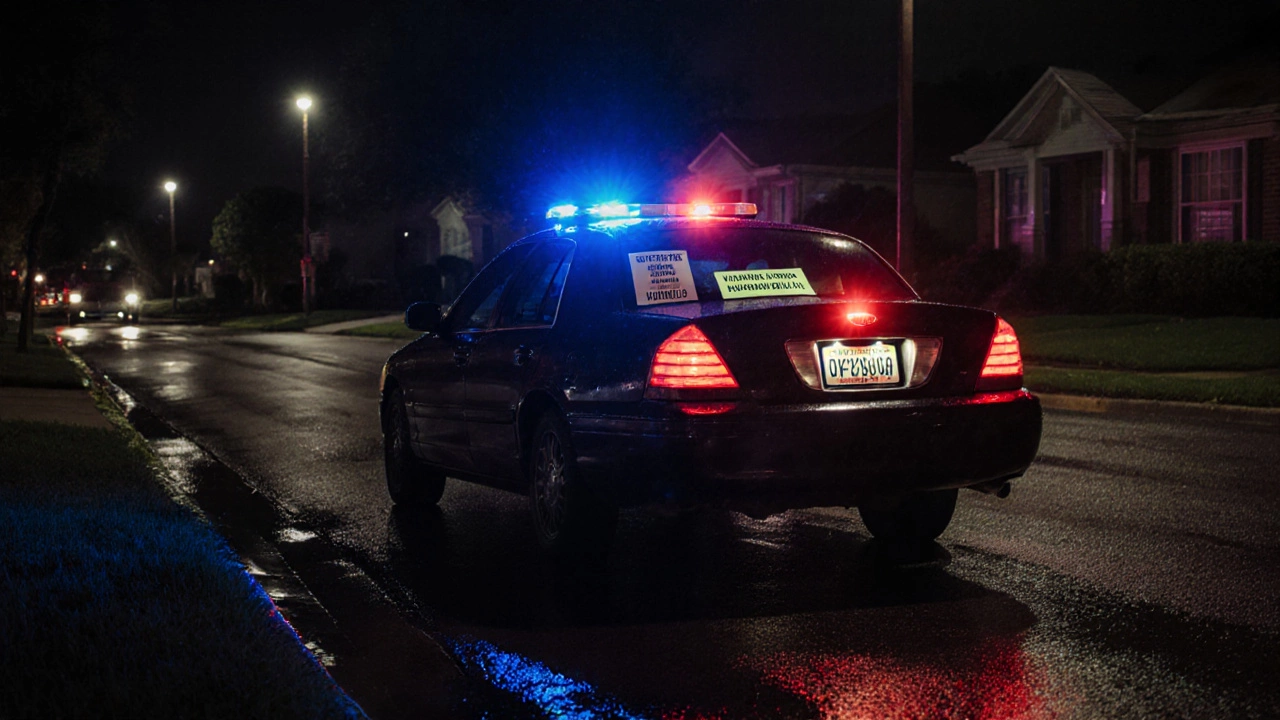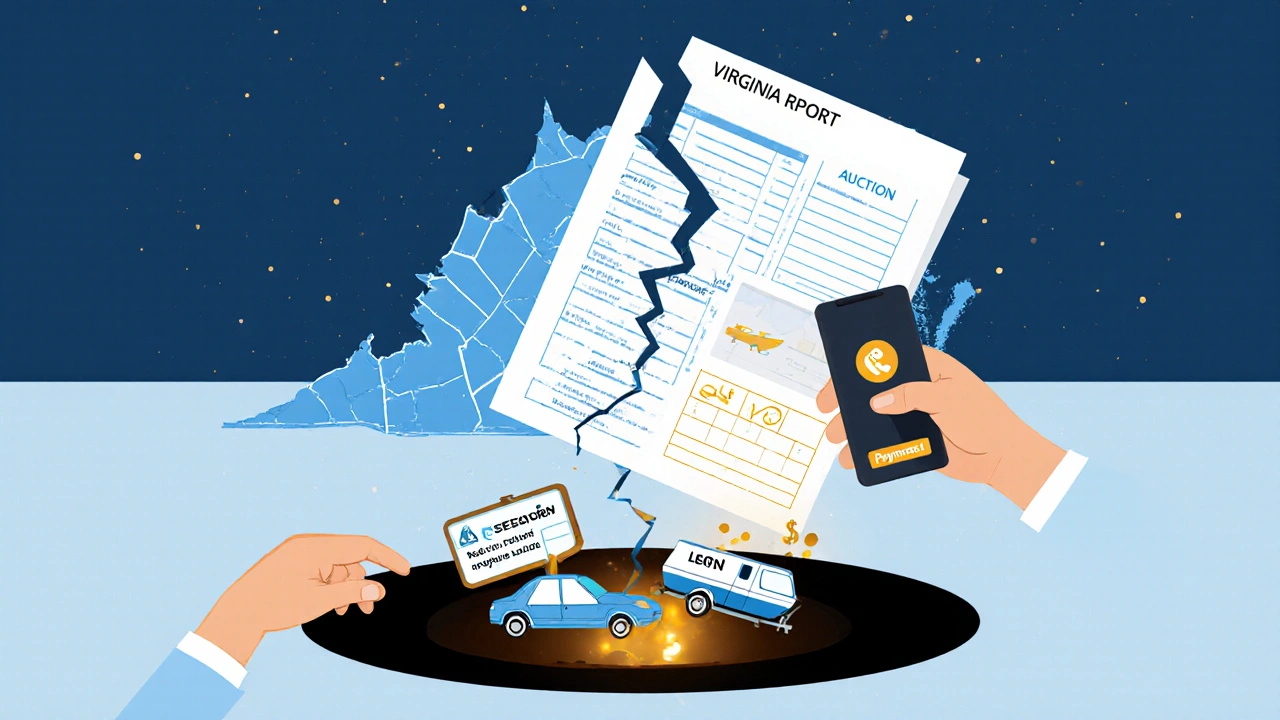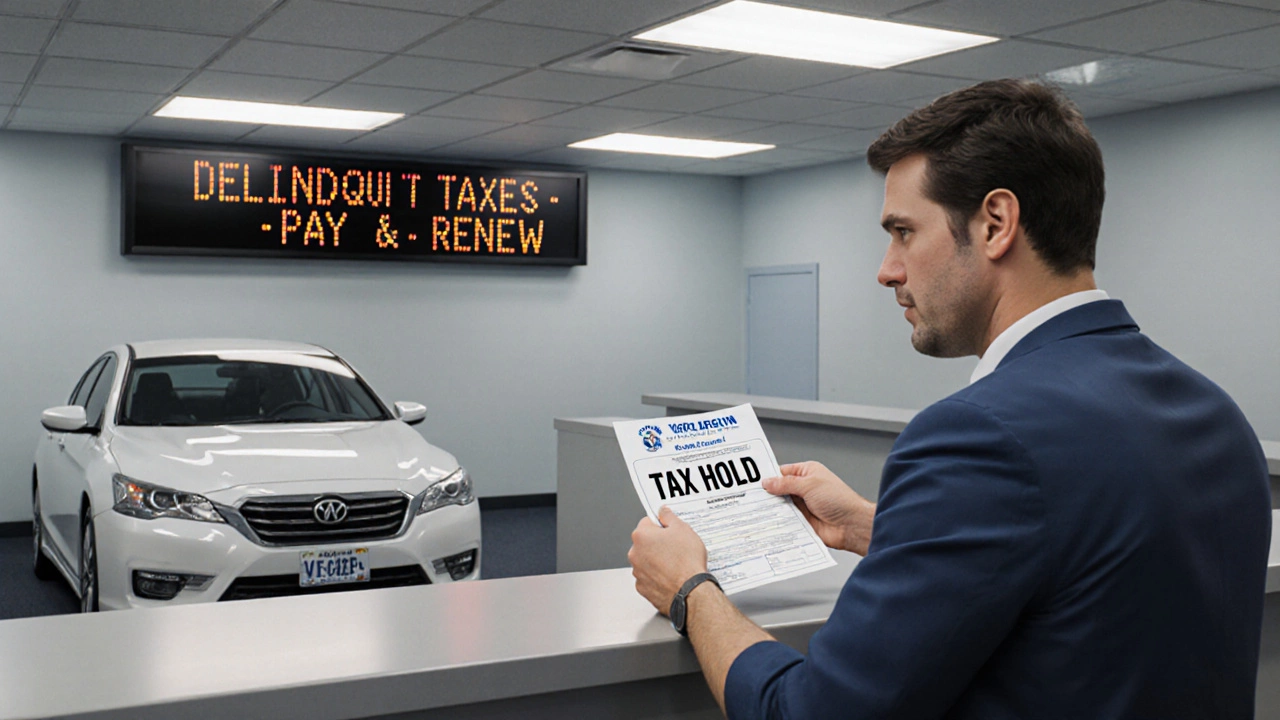If you own a car, boat, motorcycle, or even a trailer in Virginia, you’re required to pay personal property taxes every year. It’s not optional. And if you ignore that bill, the consequences don’t wait around. They build up fast - and they can cost you far more than the original tax amount.
Your tax bill doesn’t disappear if you ignore it
Virginia counties and cities send out personal property tax bills every year, usually in the spring. These taxes are based on the value of your vehicle or other taxable property as of January 1. The bill comes with a due date - often June 5 or December 5, depending on your locality. If you don’t pay by that date, interest starts accruing immediately.
Most places charge 10% annual interest on unpaid balances, compounded monthly. That means if you owe $300 and don’t pay for a year, you’ll owe $330. After two years? $363. The interest keeps rolling up, and penalties pile on top. By the time the local treasurer’s office sends a final notice, you could be paying nearly double what you originally owed.
They’ll put a lien on your property
When taxes go unpaid, the government doesn’t just send reminders. They file a tax lien against your vehicle or other taxable asset. This isn’t a warning - it’s a legal claim. The lien shows up on public records, and it blocks you from renewing your vehicle registration or selling the item until the debt is cleared.
That means if you try to renew your license plates at the DMV, you’ll get stopped. No matter how clean your driving record is, no matter how much you’ve paid on your insurance - if your property taxes are overdue, the system won’t let you renew. You’ll get a notice saying ‘Tax Hold’ - and you can’t move forward until you pay.
Your car can be towed and sold
After several months of nonpayment, most Virginia localities move to enforcement. The treasurer’s office can authorize a tow company to seize your vehicle. This isn’t rare. In Fairfax County alone, over 1,200 vehicles were repossessed for unpaid personal property taxes in 2024.
Once seized, your car is held for a set period - usually 30 days - while you still have a chance to pay. If you don’t, it goes to auction. The government sells it to recover the taxes, interest, and fees. What’s left after the sale? You might get a check - if there’s anything left. But in most cases, the sale doesn’t cover the full amount owed, and you still owe the difference.

It can hurt your credit - and your finances
Unpaid personal property taxes don’t just affect your car. They can show up on your credit report. While not all counties report directly to credit bureaus, many sell delinquent accounts to third-party collection agencies. Those agencies do report. And once a collection account hits your credit file, your score can drop by 100 points or more.
That drop makes it harder to get loans, rent an apartment, or even qualify for a cell phone plan. Some employers check credit reports for certain jobs. A tax lien or collection on your record could cost you more than just your car - it could cost you your job.
Boats, trailers, and other property aren’t safe either
Personal property taxes in Virginia aren’t just for cars. They cover boats, jet skis, campers, trailers, and even some business equipment. The same rules apply. If you don’t pay on your 22-foot fishing boat, the county can place a lien on it. You won’t be able to register it for the next season. If you try to sell it, the buyer’s title search will show the lien - and they won’t close the deal.
And yes - they can tow your boat from your driveway or storage lot. One resident in Chesapeake lost his 19-foot pontoon boat after three years of missed payments. He didn’t even realize the county had the authority to take it until the tow truck showed up.
There are options - if you act fast
Just because you missed a payment doesn’t mean you’re out of options. Most Virginia counties offer payment plans. You can usually set up a monthly arrangement to pay off the balance over time - often with reduced interest if you get on the plan before the lien is filed.
Some localities also have hardship programs for seniors, veterans, or low-income residents. In Loudoun County, for example, you can apply for a tax deferral if you’re over 65 and meet income limits. That doesn’t erase the debt - it just delays it until you sell the property or pass away.
The key is to call your local treasurer’s office before things escalate. Don’t wait for the tow truck. Don’t wait for the credit report to drop. Call them. Ask about payment plans. Ask about relief programs. Most will work with you - if you reach out first.

What happens if you move out of state?
Some people think if they move to another state, they can escape Virginia’s tax bill. That’s a dangerous myth. Virginia’s tax lien follows your vehicle, not your address. If you sell or register your car in another state, the DMV will check for outstanding Virginia taxes. If there’s a lien, they’ll block the transfer. You won’t get new plates until you pay.
Even if you leave the country, the debt remains. The state can still pursue collection through federal tax offsets - meaning your next federal tax refund could be seized to cover what you owe. And if you ever come back to Virginia - to visit, to work, to retire - your car will be blocked again. The system remembers.
How to avoid this entirely
The easiest way to avoid all this? Pay your bill on time. Set up automatic payments through your county’s website. Most offer e-check or credit card options with no fee. You can also sign up for email reminders. Some counties even text you when the bill is due.
If you can’t afford the full amount, don’t ignore it. Call your treasurer’s office. Ask for a payment plan. Ask about discounts for early payment. Many places offer a 5% discount if you pay by the first due date.
And if you’re unsure whether you owe - check. Visit your county’s official website. Search for ‘personal property tax lookup’ and enter your license plate or account number. It takes two minutes. And it could save you thousands.
Bottom line: This isn’t a small bill
Personal property taxes in Virginia might seem like a minor yearly expense - $50, $100, even $200. But ignoring them turns a small problem into a big one. Your car can be taken. Your credit can be wrecked. Your registration can be blocked. Your refund can be seized. And you’ll still owe the money.
Don’t wait for a notice. Don’t hope it goes away. Pay it. Or call and make a plan. Either way, act before the tow truck shows up.
Can I go to jail for not paying personal property taxes in Virginia?
No, you cannot go to jail for not paying personal property taxes in Virginia. This is a civil matter, not a criminal one. The government can’t arrest you for unpaid taxes. But they can seize your vehicle, place liens on your property, and take your federal tax refund. The penalties are financial, not jail time.
How long do I have to pay before my car gets towed?
There’s no single timeline across all Virginia counties, but most wait 60 to 90 days after the due date before starting enforcement. Some, like Richmond and Norfolk, may act faster - as early as 30 days. Once the tax lien is filed and you’ve been notified, you typically have another 30 days to pay before the vehicle is seized. Always check with your local treasurer’s office for exact timelines.
Can I pay my personal property taxes online?
Yes, every Virginia county and city offers online payment through their official treasurer’s website. You can pay with credit card, debit card, or e-check. Most sites let you search by license plate number or account number. Payments are processed immediately and show up on your record within 24 hours. Avoid third-party sites - always use your county’s official portal.
What if I sold my car but still got a tax bill?
If you sold your car but still received a tax bill, you need to prove the sale to your local treasurer’s office. Bring the signed title showing the new owner’s name and the date of sale, or a bill of sale with both signatures. You can also submit a DMV transfer confirmation. Once verified, the tax bill will be adjusted or canceled. Don’t ignore it - the debt will follow the vehicle, and you could be held responsible if you don’t document the transfer.
Do seniors get any breaks on personal property taxes in Virginia?
Yes, many Virginia counties offer tax relief for seniors over 65 or disabled residents. This often comes as a deferral - meaning you don’t pay now, but the amount becomes due when you sell the vehicle or pass away. Some places offer partial exemptions based on income. You must apply; it doesn’t happen automatically. Contact your local treasurer’s office to ask about senior or disability relief programs.
If you’re unsure where to start, visit your county’s official website and search for ‘personal property tax’ - you’ll find payment options, deadlines, and contact info for the treasurer’s office. Don’t wait until it’s too late.

